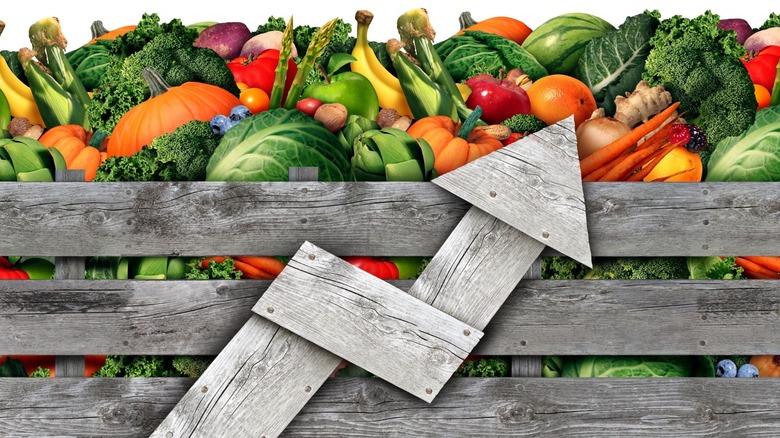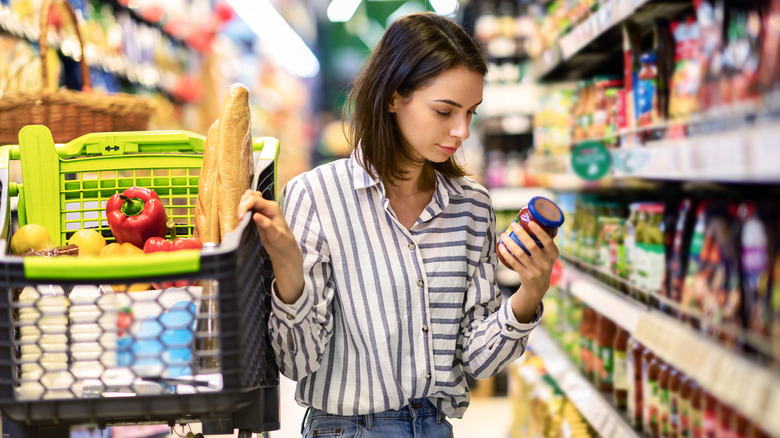The Foods That Are Skyrocketing In Popularity, Thanks To Inflation
The recent food inflation trends mean that things from gas to rent to travel are quickly getting more expensive. Grocery prices are no exception (per Food Dive) and they may be the area that the average consumer notices the most. And although you can't change your rent or lower gas prices, you can shop around at the grocery store to see if you can find a cheaper brand than the one you're used to buying. This means that consumers are turning to private label foods (also known as store brands) instead of big name brands in the hopes of a price break. These labels actually suffered during the pandemic, so this uptick in sales is a welcome boon.
Catalina's Shopper Intelligence Platform was able to draw some conclusions from the data about which food categories are seeing the highest rise in store-brand staples. For instance, canned fish and soup are rising rapidly, which Catalina suggests is due to the shopper turning to more affordable lunch solutions. Meanwhile, Walmart reported to analysts that customers are turning to private labels for lunch meat and dairy, according to Food Dive. High grocery prices are stressful, especially in a climate where seemingly everything is getting more expensive with no signs of going down anytime soon. It makes sense that shoppers want to find cheaper options where they can, and it turns out that private label versions of certain items have seen particular surges in popularity.
Store brands cost less than name brands
Catalina reports that private brands are seeing gains in several other categories of grocery, like baking mixes, dried vegetables, baby food, and even deodorant. The study attributes the rise in deodorant and other personal care items to people moving back to office work after several years of employees going remote. The trend in private label baby food comes after a national baby formula shortage (per Healthy Children) that left many new parents panicked about available necessary nutrients for newborns.
Fox Business reports that for example, CVS store brands are 20% to 40% cheaper than name brands, depending on the department and product. Walgreens, Walmart, and Target report similar sales trends. It makes sense — if you're going to the store and not thinking about prices, it's easy to just grab the most obvious brand name of a product. But in times of financial hardship, you're going to take that extra minute to observe which products are cheaper. Store brands almost always have a lower price tag, which can bring down your shopping total significantly if you're bargain hunting in every aisle. According to Forbes, 87% of consumers have turned to store brands in order to save money. Unfortunately, there's no way to know how long inflation is going to last, according to the Washington Post. But, it's good to know that store brands are a solid way to save money during this challenging financial moment.

